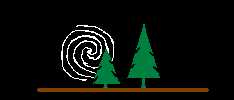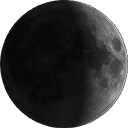UPDATED EIGHT HOURS AFTER ORIGINAL POSTING
There will be no aurora borealis after all!
Dwight Lanpher forwarded this message from J. Kelly Beatty of Sky & Telescope, via Amateur Telescope Makers of Boston’s listserve:
On 7/10/23, 2:45 PM, Kelly Beatty wrote:
yeah, I had a neighbor ask me about this a couple of nights ago. apparently the Associated Press ran a story on Saturday quoting Univ. of Alaska’s Geophysical Institute, whose modeling predicted Kp = 6 on Thursday. but I think it’s a false flag. as has been mentioned, there’s nothing from NOAA’s SWPC to back up that claim. there was a single M-class flare early today (UT), but from a sunspot well off to the side. so everyone can chill out and go back to reading your copies of Sky & Telescope. 😉
clear skies,
Kelly
Dwight Lanpher is the club liaison for all of the astronomy clubs in Maine and New Hampshire, as well as some in Massachusetts. Sunspots on the side of the Sun do not eject mass toward the Earth, and so can not cause aurora borealis. Originally, this post had read:
There has been a great deal of excitement surrounding a prediction that an aurora borealis may soon be visible in Maine, on the nights of Wednesday and Thursday, July 12 and 13, 2023, as described in articles such as this one:
https://www.npr.org/2023/07/09/1186525577/northern-lights-aurora-borealis-2023
The Romantic in me rejoices, while the skeptic wonders whether the aurora may be blocked by the clouds, clouds, clouds that have so dominated our skies recently. But, hope is a virtue, so it always pays to be aware of the skies. The last time there was an aurora, clouds blocked it from my house, yet it was visible through partings of the clouds closer than an hour away.






